From a vampire hunter on Angel to a super cyborg on Marvel's Agents of S.H.I.E.L.D., J. August Richards has portrayed a number of fantastic roles on television.
But it was the part of Dr. Oliver Post, a married Black gay man and father, on Council of Dads that finally challenged Richards to take the final leap out of the closet as gay last week. The 46-year-old actor did so in an Instagram Live conversation with Sarah Wayne Callies, his costar on the NBC drama.
"Honestly, it required me to show up fully in a way that I don't always when I'm working," Richards said. "I knew that I could not portray this gay man honestly without letting you all know that I am a gay man myself." He did so because he knew that there were others like him that "need to see that role model" in media.
There were other factors that led to his coming out. In the interview with The Advocate below, Richards discussed how he felt being an out gay Black actor was not option in Hollywood in the '90s and said the current shift toward acceptance required "updating my software."
He updated with some help from Tony Phelan and Joan Rater, the Council of Dads co-creators who are also known for Doubt, the short-lived legal drama in which Laverne Cox made history as the first transgender actress to play a trans series regular on network television. Rater and Phelan are the parents of a trans child and prioritize LGBTQ inclusion in their projects.
Council of Dads is a similar game-changing show for network TV. The story is sparked by the death of the father of an interracial, blended family that includes a transgender child, JJ (Blue Chapman). Before he dies, the dad requests that his three friends, including Richards's character, help raise his children and advocate for them. In the pilot episode alone, one of the members of the newfound council defends JJ from his own grandmother as she tries to make the boy wear a dress.
The diversity of Council of Dads -- in front of and behind the camera -- played a hand in changing Richards's views of Tinseltown. It also empowered him to advocate for his character and inject aspects "affirming of who I am and my experience."
The Advocate: Congratulations! How do you feel?
J. August Richards: I was talking to a friend last night and I just randomly, in the middle of the conversation, said, "I'm so happy." That last little layer of, like, sharing it publicly was a question that I had been living with for so long. And there were times when I fooled myself into thinking that didn't matter and that it was OK for me to exist how I was. It is OK -- if it's OK for you, it's OK. But for me, it was not. And so this show gave me the right opportunity and the right timing and the right reason, because the reason was not just about me. It was about others. I really feel like the universe conspired to get me right at that moment where I was with my castmate and I felt comfortable enough to share. I'm so happy, dude.
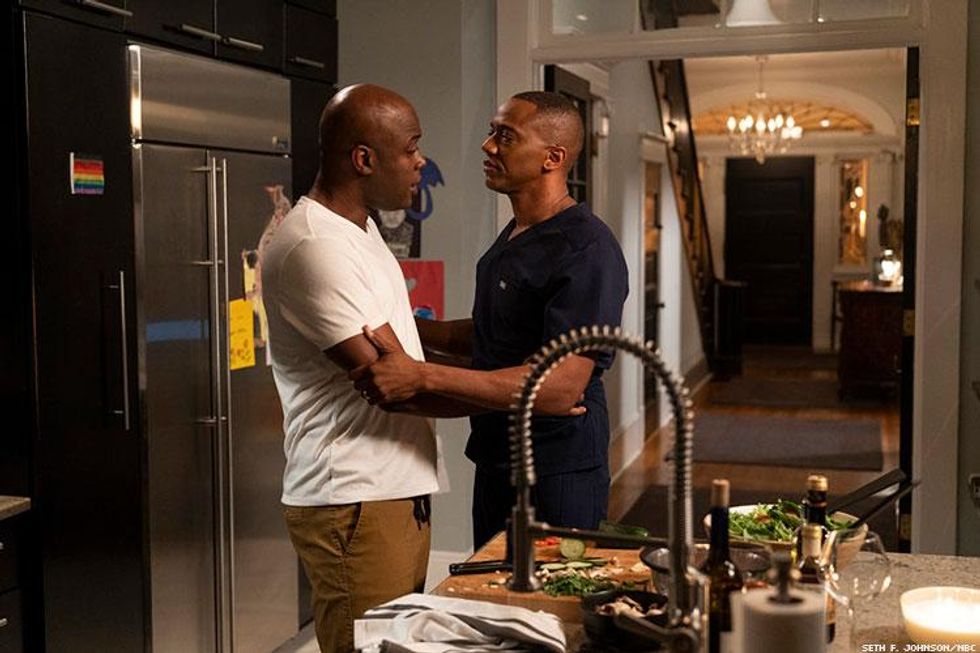
We're so happy that you came out. What's been the reaction like from fans, from the public?
I could have never predicted the response that I got, which was so much love and so much support. Sarah and I did the live interview on Friday and then I reposted the clip on Monday, and after I reposted the clip, I turned my phone off, walked around the block, prayed, and meditated, and turned my phone back on. I think I did it at 10 and it wasn't even noon, and someone who works on my team called me was like, I think the story is going beyond your page, and I'm like, "What do you mean?" She was like, "A couple of outlets picked it up." And I was like, "You know what, I didn't think this through. I didn't anticipate that." So the support from the press, the fans, my family, my friends -- my immediate family knows, obviously -- people that I don't know all over the world, it was beautiful.
What were some of the concerns that prevented you from coming out sooner?
When I first started in the business, there were just so few opportunities for Black actors that I felt like if people knew that I was gay, I would be exing myself out of those very few opportunities. That was the Hollywood that I arrived in. If there was a role on a show for a person of color, it was only one role and it was a small role. I was having difficulty navigating the business as a Black actor and I felt like adding the gay part would have just exed out of everything. And I can't even say that that fear was not real. But that was a real concern for me in the '90s as a young actor moving to L.A. As I said in another interview, it was a matter of me updating my software, if you will, because the industry that I started in is not the industry of today. And there are so many more opportunities for actors of color and LGBT actors. Prior to this, I kind of had the fear of a 19-year-old here in Hollywood, and I just had to realize that I'm now 46. The world has changed. The industry has changed. And, more importantly, I have an opportunity with this role to make things better for someone else. So it just seemed like the perfect time and I'm so glad that I took it.
What do you believe is the power of an out Black actor portraying a Black gay role on network television?
It's so important because I think that when we see ourselves represented with love and intimacy of knowledge, it empowers us and makes us feel seen. So that's why the role was so important to me and that's why I made the choice to come out to the producers, the writers, because I needed them to know that I was an authority on this character, on this life. It was important to me that the nuances of the experience of being a Black gay man were represented on this show, because otherwise, why am I even doing it?
Can you give an example of how you've changed the character from how it was originally written?
Just certain things that I added to it. For example, we go home with Oliver a lot. And so I had meetings with the prop department, set decoration, and art direction. I said, when we come into Oliver's home, we have to feel like we are in a very specific space that these two Black men who live here. My experience of being a Black gay man is that I've generally put things on my walls and in my world that affirm me because the outside world doesn't affirm me that often. So in my home, there are things that are just very affirming of who I am and my experience. So I was like, I need that represented visually.
Then also, the way that we interact. My husband and I on the show had been together for 15 years. And I wanted that feeling of what Michael O'Neill calls "old love." There's new love, when you're all over each other. But then there's that old love that is just lived in and sat in, and I wanted to feel that. I kind of modeled it after two Black gay men that I know who are married, and their relationship is just comfy like an old couch. I wanted to bring that to the character.
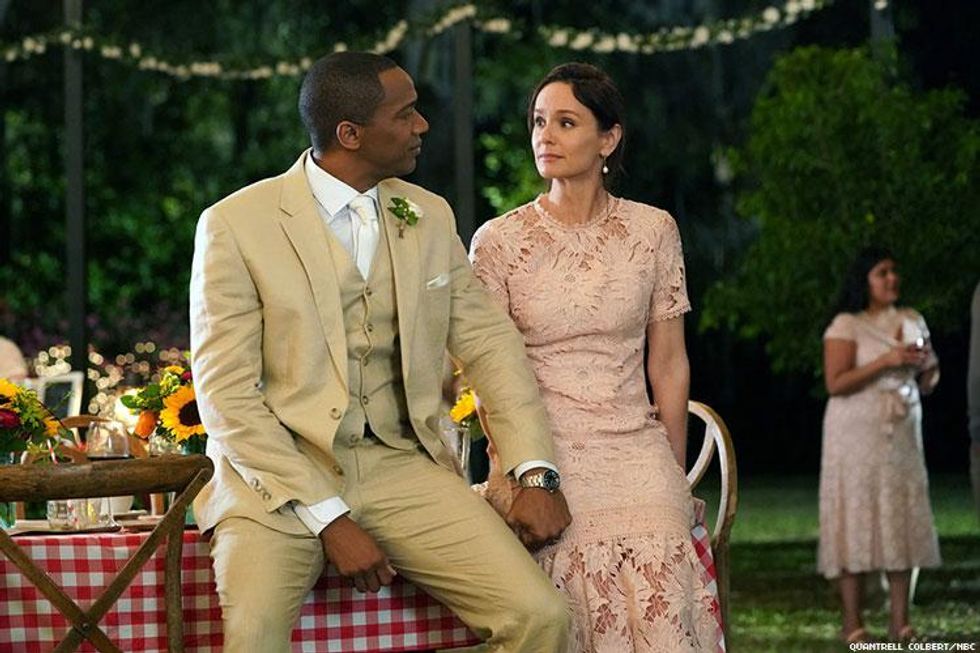
Tony Phelan and Joan Rater, the show's creators, are huge LGBTQ advocates. They have a trans child. What's it like working with them? Did they impact how you saw Hollywood?
Absolutely. They go so far out of their way to create an inclusive and collaborative environment. They welcome my input, my voice to the conversation. But more importantly, they're very aware of who they hire and that it's a diverse environment where everyone feels empowered. It's very hard. I've learned that when you're the only one in whatever environment it is, it's still a bit disempowering because you're the only one. But they create an environment where there are several of everyone. I've never worked with so many female department heads. I've never worked with so many directors of color in my life. I think by the time we got to episode 5, I had worked with more Black directors than I had in any season of television. Actually, I'm sorry -- in my entire career. By the time we got to episode 5, I'd worked with four black directors in one season of television, and that is unheard of for me. So they really go out of their way to create an inclusive and diverse environment. The writers' room, very diverse as well.
It really shines through. The show also features the character of JJ, who is a transgender 7-year-old boy. There's this really beautiful scene in the premiere where one of the council members explains to the grandmother why JJ shouldn't wear a dress, which I thought was so moving. What's it like being a part of a show that is at the vanguard of representation for trans young people, particularly in a time when they're being attacked politically?
Oh, so important. Joan, Tony, and I were on a panel once and Joan expressed how important it was to her to show a parent loving their trans child on television, not arguing with them, not fighting with them, not trying to change them, but just that simple act of loving and accepting their trans child. That was so important to them and so important to all of us. I really believe that just having that image in the world, hopefully, it really inspires people to open their hearts and change.
The show is also about nontraditional families, found families. I'm curious if that resonated with you. Did you ever have a found family in your life?
My family is from Panama. And the thing about being from Panama is that people moved there from all over the world to build the Panama Canal. And so lots of Jamaicans and people from Barbados moved to Panama as workers on the Panama Canal. All my life, I grew up with a really big family and it wasn't until I got into my 20s that I started to realize that some of the people that I was calling aunts and uncles and some of the people that I was calling cousins, actually I wasn't related to them at all. Because in an experience like that, where a lot of people are immigrating to a country, they create families. They had to. And so I have a very big family, and a family that is not bound by genetics. That's where I come from. So the concept of embracing others into your family and making a larger family, I mean, that's how I came into the world.
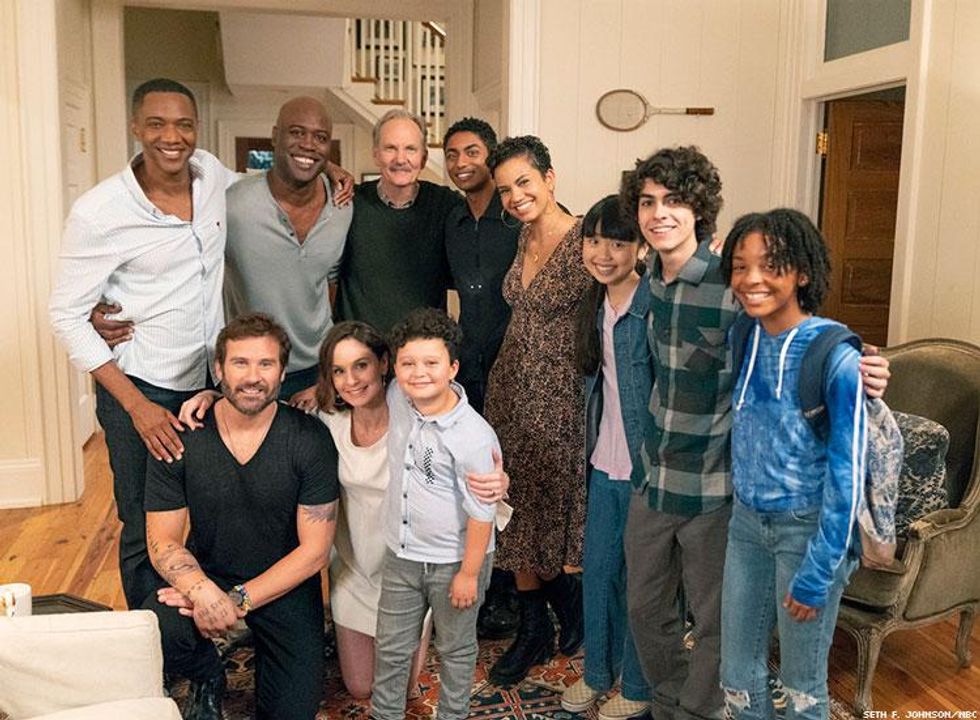
The show is arriving at an interesting moment, to say the least. But the show is also about health care; it's about how illness impacts a family. How do you hope the world receives its message now that we're all impacted by a health crisis?
I hope that it impacts the world in the way of inspiring community. That is what I am experiencing. As a part of this pandemic and part of the crisis, my neighborhood joined this app called Nextdoor, and it keeps us informed about what's going on with our neighbors. If there's someone who's elderly and need something from the grocery store or if something is going on in the neighborhood that impacts our quarantine. Really, I hope that that's what people take from the show is just showing up for other people in your life in a real way. I see that happening now. I think about my friend groups and how we do Zoom happy hours and, oh, you can't find onions at the grocery store? I'll get you onions there at mine. I'll leave them on the front door for you. That sense of showing up for each other. I hope that that's what people take from the show and I hope that we keep that as a part of our society.
And what's next for you?
Man, who knows! ... Life is on hold right now. So what's next for me is I'm about to go for a walk, and I'm about to make some lunch and have a little workout in the backyard, and that's as far ahead as I'm thinking.
Council of Dads airs Thursdays at 8 p.m. Eastern on NBC. Watch the trailer below.
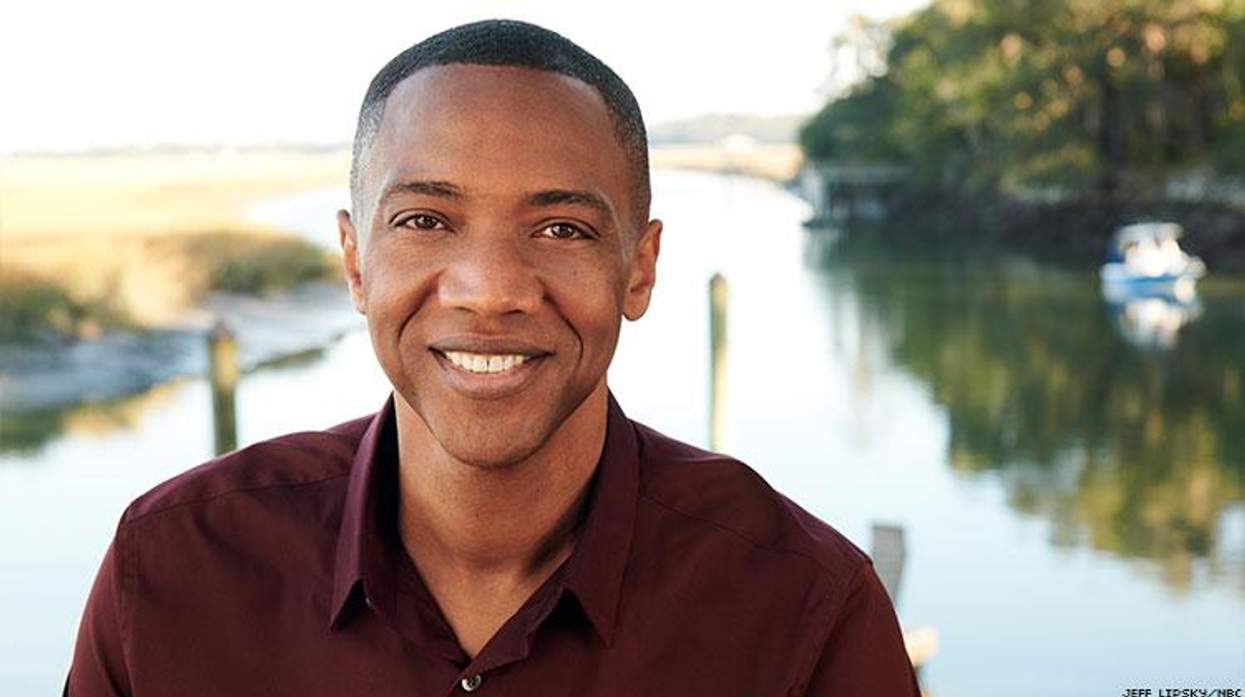





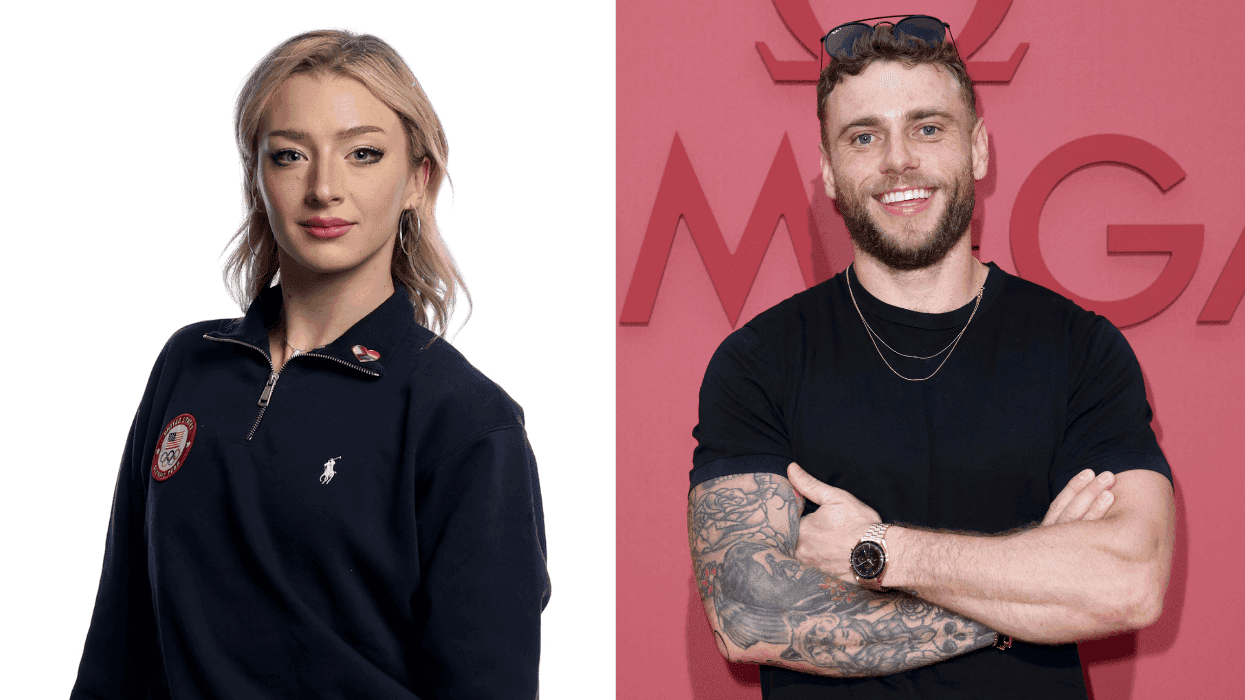

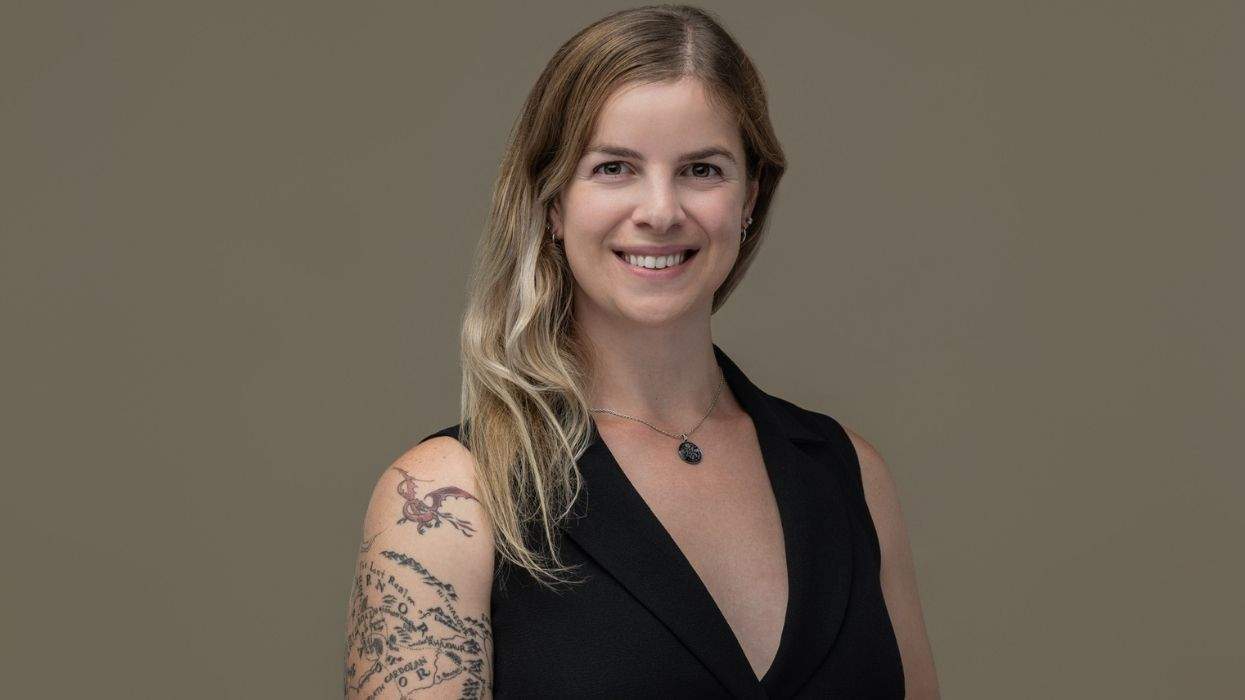
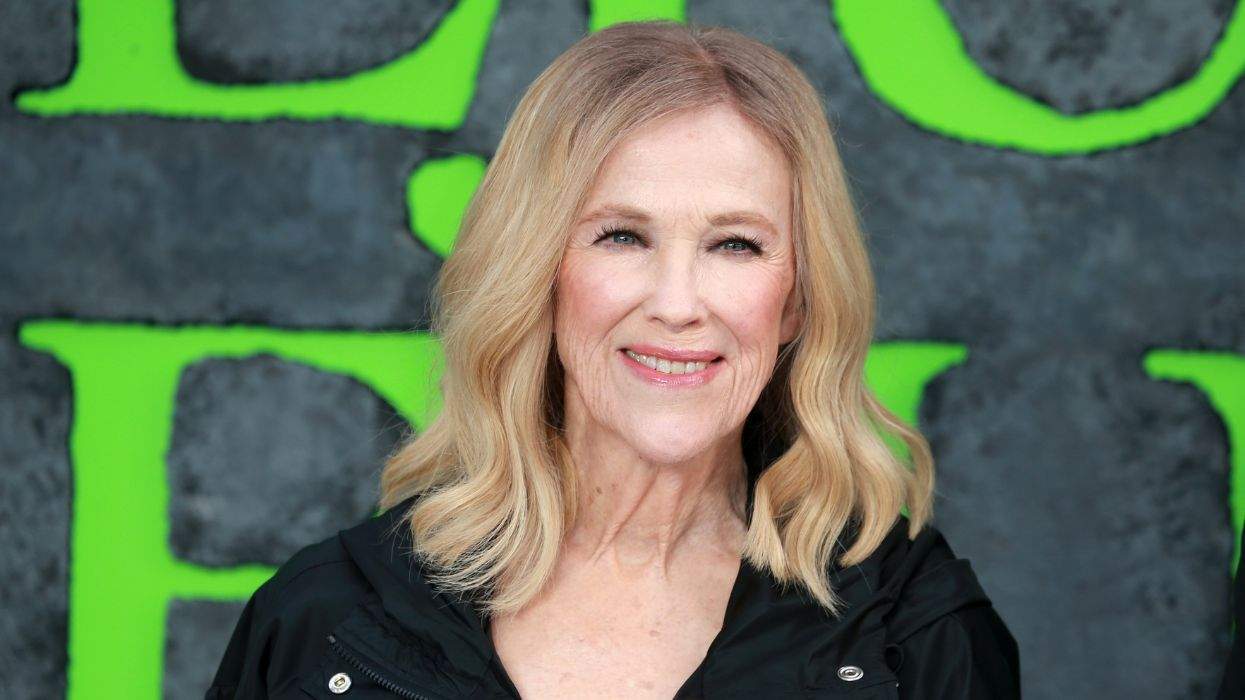





Charlie Kirk DID say stoning gay people was the 'perfect law' — and these other heinous quotes
These are some of his worst comments about LGBTQ+ people made by Charlie Kirk.